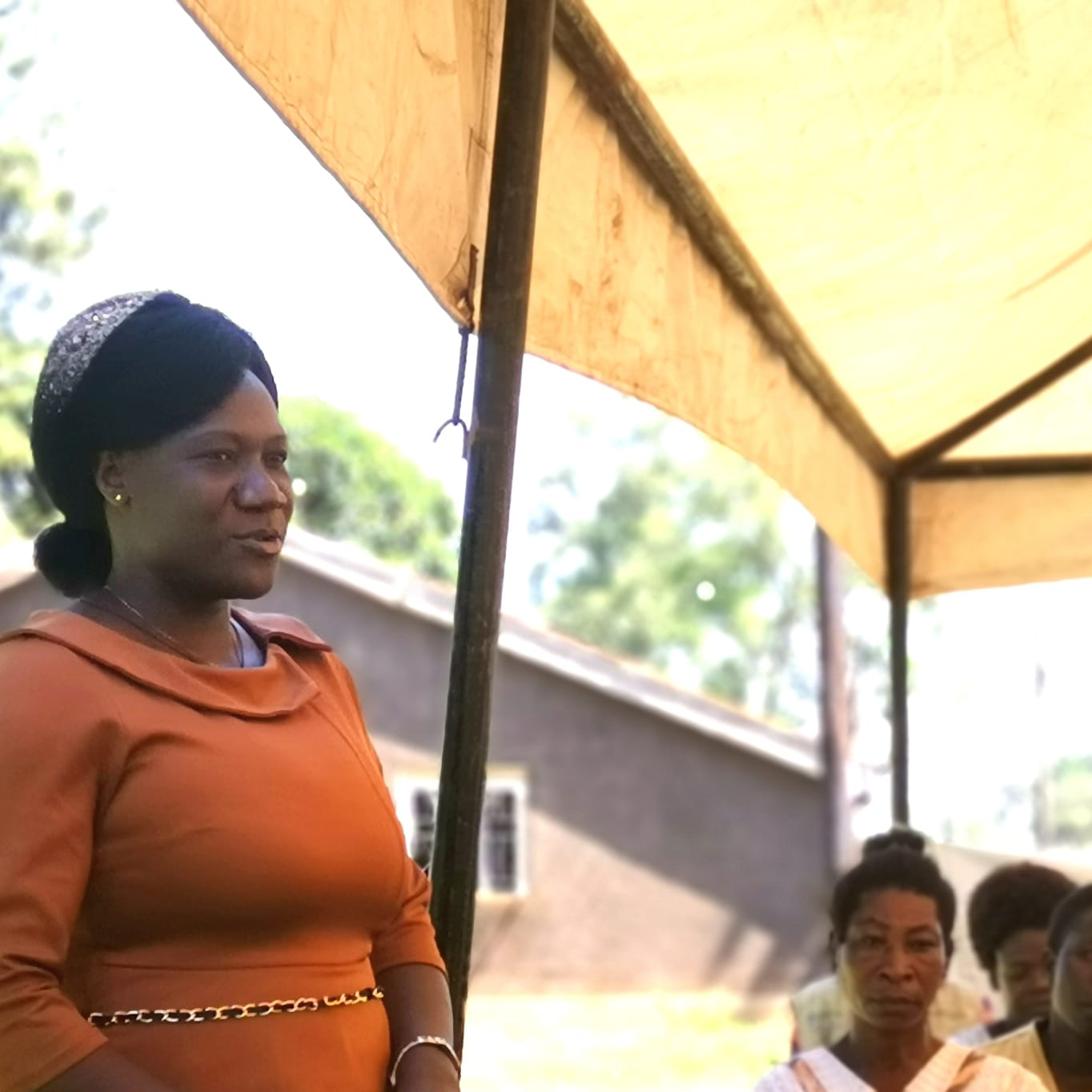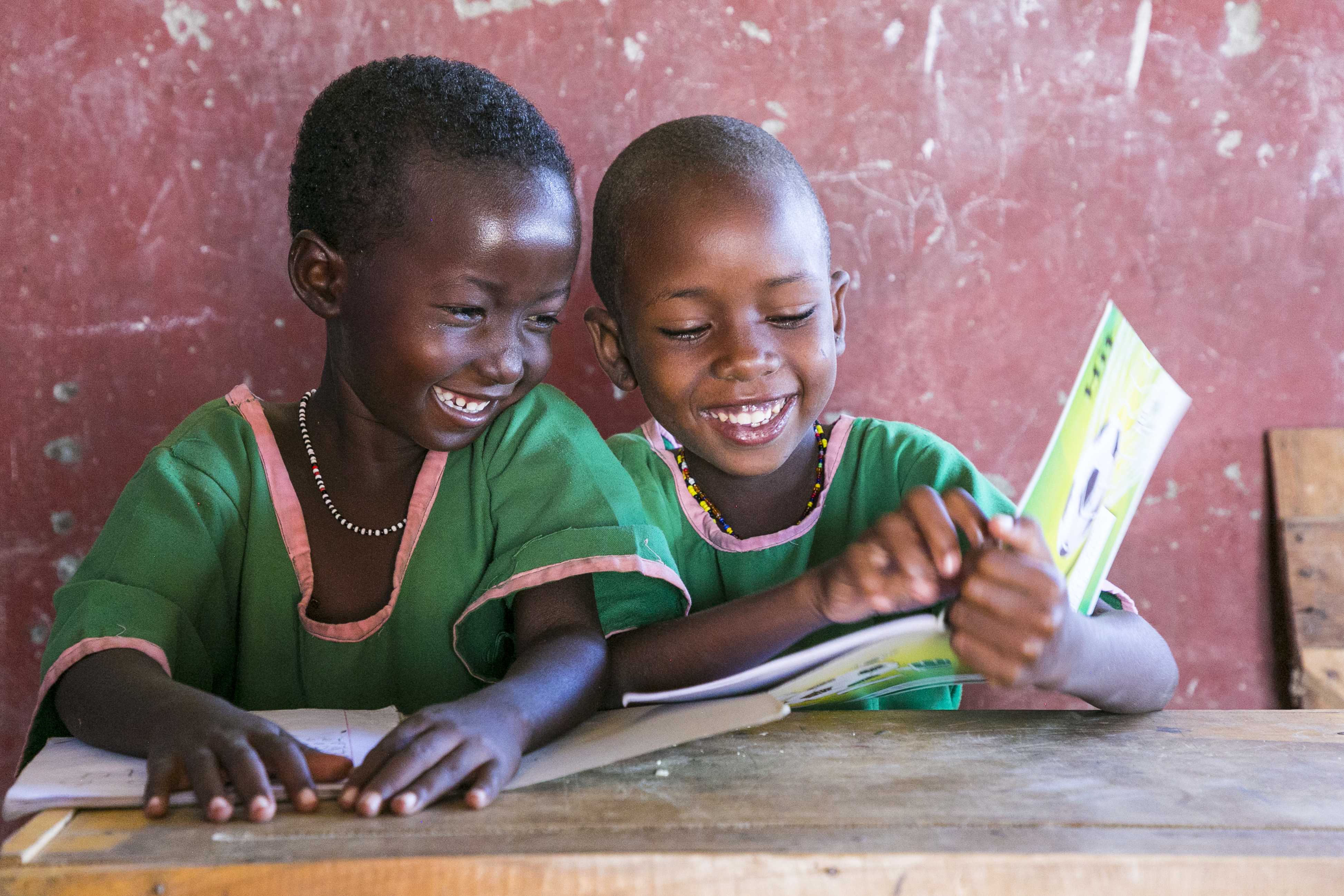
An Unlikely Christmas Miracle
Fictional story inspired by World Vision Uganda's Elizabeth Aluka
An Unlikely Christmas Miracle
Elizabeth woke, blinking, as a chink of light found its way through a crack in the door. In that space between sleeping and waking, the little girl was briefly confused. She thought the light was a flame, burst up from the embers of the fire where she had cooked last night’s Atap. But then she remembered. She wasn’t in the cooking hut last night. For three or more days now, all she and her siblings had eaten were scrapings of food their neighbours had been kind-hearted enough to share.
It felt like a long time since she had cooked or eaten a full meal. Everyone around her was struggling with the latest drought. People were starving, and it was only by some strange grace of fate or God or luck that she and her siblings were still alive.
She was lying beside her younger sisters Sarah and Mirembe, and their little brother, the baby, Mukasa. Of course, Mukasa wasn’t a baby anymore. In the three years he had been with them, since that day when he and his mother passed by each other in the corridors between heaven and earth, he had somehow grown stronger than anyone might have expected.
As she did every morning, in this quiet time before the sisters and Mukasa awoke, Elizabeth daydreamed a little, thinking, inevitably, of their mother. As always, she found herself returning to the day she had died, replaced by a screaming baby anyone might have forgiven Elizabeth for rejecting. Her father had insisted on calling this demanding stranger Mukasa. The name, he had explained gently, means God’s Chief Administrator. The irony of such a title was lost on 9-year-old Elizabeth.
Elizabeth looked at Mukasa, sleeping so peacefully beside her. Her thoughts went back to the day, the moment she saw him for the very first time. She was in a frenzy of confusion. She just wanted her mother back and she was not feeling any affection towards this blubbering imposter.
The months that followed that day were a blur. The desperate loss of her mother was a tragedy she barely had time to dwell on, as hunger and acute need engulfed their household, exacerbated by her father’s failing health. It wasn’t until he was in the last throes of life that Elizabeth finally understood the peril that she and her siblings were in. Mukasa was exactly 6 months old when their father died. Already, Elizabeth had taken over as head of the family. On the day of their father’s funeral, Elizabeth was 9 years, 8 months and two days old. She felt like an old, old woman.
Mukasa stirred, opening his big, brown, peaceful eyes. Elizabeth rose, lifting him with her. Standing in the shade of the doorway of their home, Elizabeth faced her daily reality. Mukasa wriggled a little in her arms, then slumped into her shoulder. He looked tired. He had been a little fighter from the moment he was born, but the lack of food was taking its toll. She rubbed his tummy. There was a hardness to his distended belly. Her heart sank. She looked around, wondering, worrying about what the day might bring. Mukasa and her sisters needed to eat. Elizabeth needed to eat. She felt a weakness sweeping over her, and a familiar sense of dread at the realisation that today would be another one like all the others, a day of wondering if they might be lucky enough to get some food.
It was then something happened that was to change the course of Elizabeth’s life. She heard the sound of singing. It was mesmerising. She followed the sound to the end of the clearing that marked the boundary of the entrance into her village. There was a group of children and their parents gathered around one of the village elders, who was leading the singing. She recognised the tune, with the sudden realisation of what day it was. Sekukkulu, she whispered, the Ugandan word for Christmas. A memory flashed through her mind, that made her feel even weaker with longing and sadness. She had a sudden picture of her mother, crouched over a cooking pot, the smell of a chicken steaming in a parcel of smoked banana leaves. Her surroundings seemed to revolve in a circle around her. Someone caught her, as she slumped to the ground.
Elizabeth came out of her stupor to the baffling sight of people standing over her. She became aware of a woman, a stranger, holding her hand, whispering encouragement. She could still smell the chicken she had been remembering. That was confusing, and it took some moments before she realised the smell was real, and nearby. As she was helped back to her feet and her muddled head was clearing, she panicked for a moment, looking around for Mukasa. He was nearby, standing between Sarah and Mirembe. The three were holding hands and looking unusually happy. The sound of carol-singing was still travelling across the air, and something in the unusual atmosphere brought a welcome wave of calm to Elizabeth’s strained heart.
Elizabeth looked about. Her eyes came to rest on a long table. Parked beside the table, were two jeeps with bright orange logos emblazoned on their sides. People were walking back and forth between the jeeps and the table, carrying bowls heaped with food. Elizabeth had started school later than was perhaps ideal, but she was a diligent student despite the challenges presented by the jobs she had to take on to try to support her siblings. She could read the wording on the worker’s orange t-shirts: World Vision Uganda.
Out of nowhere, it seemed, Elizabeth’s sisters and brother were standing beside her. Sarah took her hand. Elizabeth was still a little unsteady on her feet, aware now of her own state of weakness. The four walked towards the table. One of the World Vision humanitarian workers came towards them. Leaning down to be at their level, the woman held out her arms. “We are here to help you and your community”, she said. “Things are going to be better.”
Elizabeth felt warm tears trickling down her cheeks. These, she suddenly realised, were different to her usual tears: these tears, were tears of joy. The woman before them smiled. And Elizabeth stood still, looking straight into the woman’s eyes. And she thought to herself, in a very clear and definite way that she would remember for the rest of her life, that this woman’s smile was the warmest, the most comforting, the most believable and beautiful smile, that Elizabeth had ever seen. In that moment, Elizabeth knew that things would, indeed, be better.
***
An Unlikely Christmas Miracle is a work of fiction, inspired by the true story of Elizabeth Aluka, a Ugandan woman who grew up as an orphan, at the head of a family struggling to survive in desperate poverty. As a child, Elizabeth dreamed of one-day working for us at World Vision, the world’s largest child-focused development and humanitarian NGO. With support from what she describes as good Samaritans and government bursaries, she managed to attend primary and secondary schools. Over that time, she also worked a number of jobs to support herself and her siblings’ study. She joined World Vision Uganda after attaining a Diploma in Social Works and Social Administration. She was able to educate her siblings and further her own education by attaining both Bachelor’s and Master’s Degrees in Public health. She is now married to Joseph Odeke. They have four children, two girls, Davinah and Devondrah, and two boys Desire and Derron. She also supports a number of other children. Hers is a story of endurance and hope, which has been an inspiration to her family, community, district and colleagues. Her testimony has inspired very vulnerable children to stay in education. She works in a senior role with World Vision, where she is an Area Programme Coordinator for Child Sponsorship in the Busia Area Programme of Uganda. She lives in the village where she married, but continues to support her home and people of the community of her birth, who witnessed her tough early start in life.



